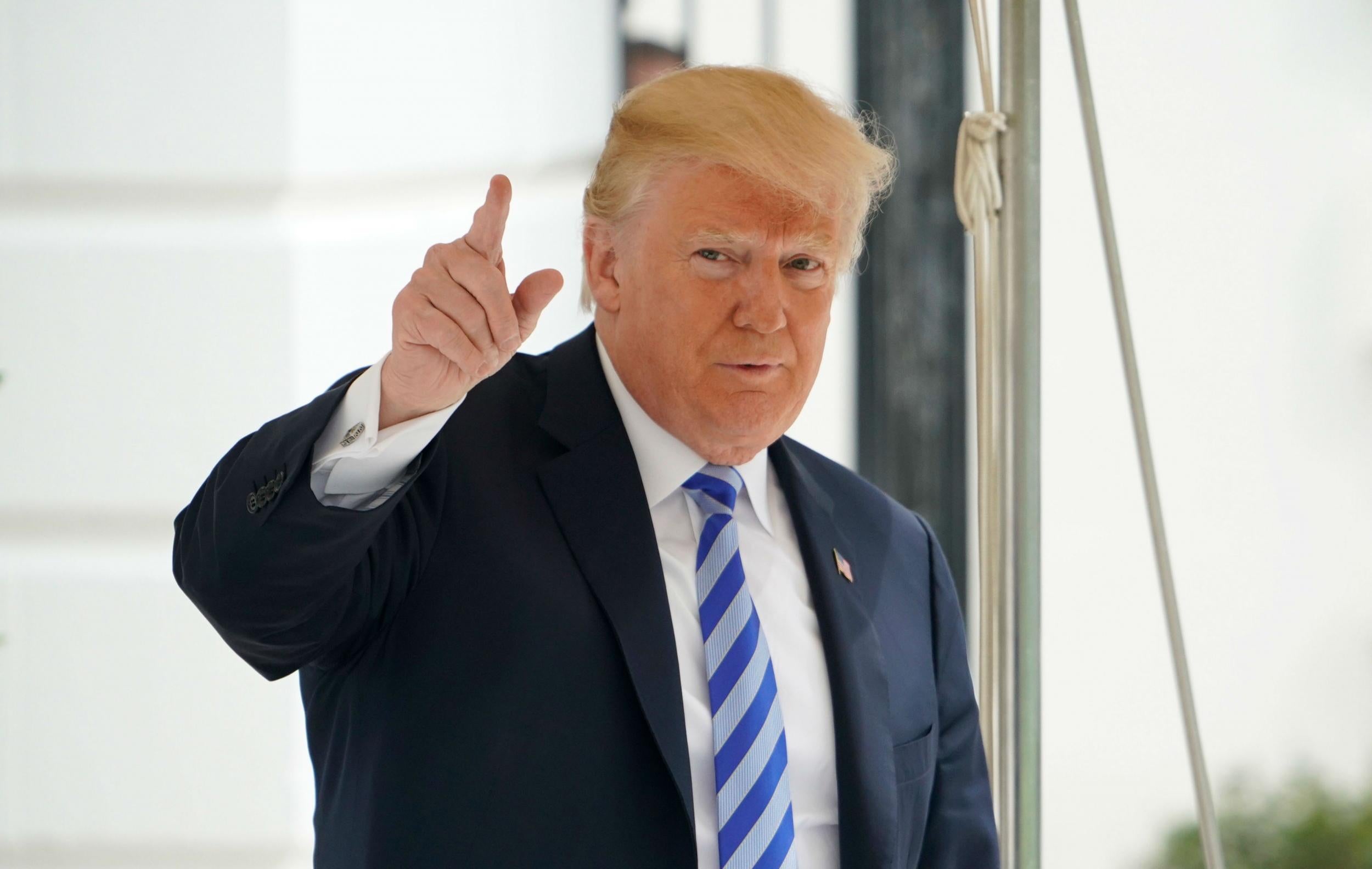Donald Trump's decision on the Iran nuclear deal could have a disastrous ripple effect on the fight against terrorism
Trump may see this as a way to diminish Obama’s legacy, but in Saudi Arabia the Iran deal is not a matter of internal politics but existential security – it’s crucial he remembers this

Your support helps us to tell the story
From reproductive rights to climate change to Big Tech, The Independent is on the ground when the story is developing. Whether it's investigating the financials of Elon Musk's pro-Trump PAC or producing our latest documentary, 'The A Word', which shines a light on the American women fighting for reproductive rights, we know how important it is to parse out the facts from the messaging.
At such a critical moment in US history, we need reporters on the ground. Your donation allows us to keep sending journalists to speak to both sides of the story.
The Independent is trusted by Americans across the entire political spectrum. And unlike many other quality news outlets, we choose not to lock Americans out of our reporting and analysis with paywalls. We believe quality journalism should be available to everyone, paid for by those who can afford it.
Your support makes all the difference.As the dramatic deadline slowly approaches and heads spin attempting to work out exactly what Donald Trump will do on 12 May, our framework for understanding the nuanced complexity of the Joint Comprehensive Plan of Action (JCPOA) – or the Iran nuclear deal – and the consequences of its existence has gradually simplified.
The prevailing narrative frames the JCPOA in terms of the interests of Iran, the US and the EU, leaving those most directly affected by it almost forgotten. The Gulf States, Iran’s neighbours and our allies in the fight against terrorism seem to have their interests largely neglected in public discourse on the JCPOA.
In the minds of many, the US administration hates the Iran deal because it was created and signed under Obama. Trump and the White House can’t stand the idea of sticking by a deal that is the pride of their most derided enemy. The equation is somewhat different, however, if you take the perspective of a country that actually neighbours Iran. In Saudi Arabia, the Iran deal is not a matter of internal politics but existential security.
The UK and EU would never accept, and haven’t done in the past, a country on its own shores behaving the way Iran does. Iran’s expansionist goals might seem distant when sat a few thousand miles away, but they have a somewhat different character from the perspective of a neighbour.
In losing our nuance on this issue, we risk something far greater – the trust of the West’s most important allies in the fight against terrorism. Taking a position at odds with the Gulf States, one that fails to incorporate their concerns in the decision-making process, will risk severing a relationship that we cannot afford to lose.
That may seem like an overreaction – many people here believe that our alliance with the Gulf is based on oil and weapons alone. But that is a grave oversimplification which is precisely what will lead to the unintended consequences I describe. It is also one that no British diplomat in the region will agree with, and shows a shameful ignorance of the deep historical and cultural ties between our countries.
But most importantly, it ignores the central role that Saudi, and the UAE, play in protecting British people from our number one security concern.Their intelligence, counter-extremism and military contributions are essential to our security services. And they serve against a threat much more imminent than a nuclear Iran.
I am not saying Saudi Arabia is perfect, but no one can doubt its importance in the fight against terrorism. It is the world’s leading Islamic agent in this tireless fight, and an agent we must place front and centre of our counterterrorism efforts, ideological differences notwithstanding.
This begins with the IMCTC, the Islamic Military Counter Terrorism Coalition, a Saudi initiative to form a united front against terrorism via a coalition of 41 countries. Its role is in essence a military one, coordinating the involvement of member countries in counterterrorism operations, such as against al-Qaeda in the Arabian peninsula.
However, its effectiveness lies in its capacity to deal with terrorism at its source. Islamist terrorism originates in an utterly perverted interpretation of Islam. A fundamentally religious crisis requires a fundamentally religious response. The IMCTC and its member countries are working to reaffirm the moderate values of Islam, with its principles of peace and tolerance. If we are unwilling to work with them we reduce our efforts to an attempt to bandage an ever growing wound.
Terrorism is a global threat, and every country that has been victim of its evil consequences has a role to play in bringing about its end. However, those closest to its source are best placed to lead this operation, and whether you like it or not that points us to Saudi Arabia. Forgetting their role would pose a major security threat to this nation.
Trump’s decision on 12 May is unlikely to take my, or any other, perspective into account. If, however, he and our leaders in this country, together with the EU, are going to reach a consensus on Iran, I implore them to see the bigger picture. We cannot risk alienating our closest allies in the fight against terrorism. Western powers have been looking for ways to extricate themselves from the region harmlessly. The Saudis are proposing to step up and lead the fight against terror, and they appear to have created the capability to do it successfully – we cannot take this offer for granted.
Sir Richard Ottaway is a former Conservative MP for Croydon South and was previously MP for Nottingham North
Join our commenting forum
Join thought-provoking conversations, follow other Independent readers and see their replies
Comments